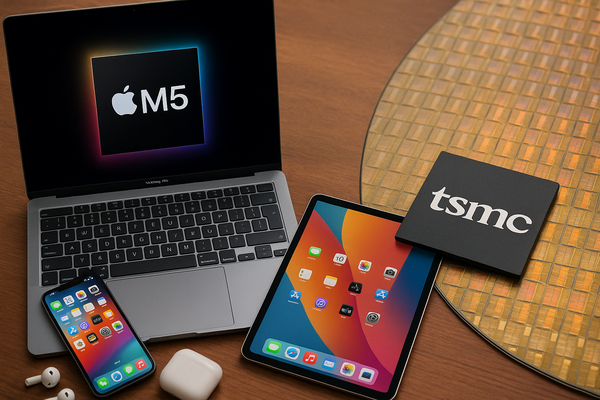
TSMC posts record quarterly profit. Taiwan Semiconductor Manufacturing Co. (NYSE:TSM) reported net income of NT$452.3 billion, up 39.1% year on year, driven by surging demand for AI and high-performance chips. The result matters now because chip orders are accelerating ahead of the holiday quarter and AI deployments. In the short term, suppliers and equipment makers see order momentum. Over the long term, a stronger capex cycle could reshape global fab investments. The news hits markets in Asia, Europe and the US, and echoes prior AI-driven upcycles in 2017–18.
Market Pulse Check
Investors piled into AI incumbents and chip suppliers today, rotating capital into names tied to data-center buildouts. Nvidia (NASDAQ:NVDA) rallied after fresh deal headlines. At the same time, investors bid up TSMC American depositary receipts as global buyers chased access to Taiwan’s capacity. Volume was concentrated in large-cap tech ETFs and specialized semiconductor funds, while small-cap names showed mixed flows.
Contrast: Apple (NASDAQ:AAPL) updated hardware with the new M5 chip to sharpen AI performance for Macs, iPads and Vision Pro, yet some brokers flagged tariff and margin risks. Meanwhile TSMC’s Q3 numbers handed the supply chain a clear near-term tailwind. That split — product-driven optimism versus policy and cost concerns — defined the session.
Analyst Convictions
Broker moves reflected the divide between momentum and caution. HSBC and other houses lifted ratings and price targets on AI infrastructure leaders after large contracts and custom-chip deals. For example, HSBC raised its outlook on Nvidia (NASDAQ:NVDA) amid further data-center orders. Mizuho boosted Broadcom (NASDAQ:AVGO) price targets following its high-profile partnership on custom AI accelerators.
At the same time, Jefferies reiterated a cautious stance on Apple (NASDAQ:AAPL), lowering its target and labeling the stock as at risk of tariff pressure. Those opposing views created a valuation wedge: high conviction among buy-side firms for pure-play AI suppliers versus defensive guidance from some coverage teams on consumer hardware and geopolitical exposure.
- Upgrades that favor pure-play AI infrastructure tightened short-term sentiment.
- Reiterations or downgrades on consumer hardware amplified dispersion.
Risk Events vs. Expansion
Two contrasting storylines played out: security incidents and regulatory friction on the downside; capacity expansion and mega-deals on the upside. F5 Networks (NASDAQ:FFIV) disclosed a nation-state intrusion that pressured shares and prompted emergency response work. Such breaches highlight operational risk for network and security vendors.
On the expansion side, the market saw record-scale AI infrastructure moves. A BlackRock-led investor group, together with cloud and chip partners, struck a roughly $40 billion deal to acquire a major data-center operator. Those transactions are soaking up capital and cementing demand for chips, power and cooling solutions.
Regulatory noise also cropped up. Qualcomm (NASDAQ:QCOM) faced scrutiny over a past transaction in China, and tariff rhetoric continues to complicate where companies place production lines. That tension helps explain why some firms are keeping supply chains diversified between China, Vietnam and India even as Chinese demand trends shift.
Leadership and Fundamentals
Leadership decisions are influencing fundamentals in tangible ways. Apple CEO Tim Cook affirmed continued investment in China while also accelerating product assembly moves to Vietnam and partnerships with BYD for consumer devices. Those choices aim to balance cost, resilience and geopolitics.
TSMC’s management signaled a revenue mix tilt toward AI and high-performance compute, reflected in gross profit expansion this quarter. Capital spending plans from foundries and equipment vendors have already ticked higher, suggesting a multiyear funding cycle. Yet fundamentals and stock moves diverge at times: some names with healthy bookings trade mutedly versus hot AI pure-plays that have already priced in aggressive growth.
Investor Sentiment
Institutional flows have favored scale players that directly serve hyperscalers, while retail interest concentrated on quantum and AI-adjacent plays. IonQ (NYSE:IONQ) experienced a volatile session after a share-sale program that diluted near-term ownership and sent the stock lower; that episode underscored retail sensitivity to dilution events.
Meanwhile, TSMC ADRs traded at a premium not seen in two decades as global buyers chased exposure to constrained wafer capacity. ETF and mutual fund rebalances have amplified these moves, creating short-term concentration risks in market breadth measures.
- Institutional: heavy allocations to NVDA and core infrastructure names; focus on contract wins and megadeals.
- Retail: high turnover in smaller-cap quantum, AI-software and device names; sensitivity to dilution and headlines.
Investor Signals Ahead
Contrasts between upgrades and downgrades, security scares and giant infrastructure deals, and leadership moves on supply chains will likely reshape who leads the next leg of market performance. Expect capital to continue favoring companies with clear, contract-backed AI revenue and scalable data-center exposure. At the same time, legal or geopolitical shocks and operational incidents can quickly re-rate stocks that lack diversification.
For investors and fund managers, the signal is to parse conviction from headline momentum. Strong bookings and partner commitments are different from short-term volume-driven rallies. That distinction is driving the current rotation in technology subgroups and will steer relative performance over the coming month.












